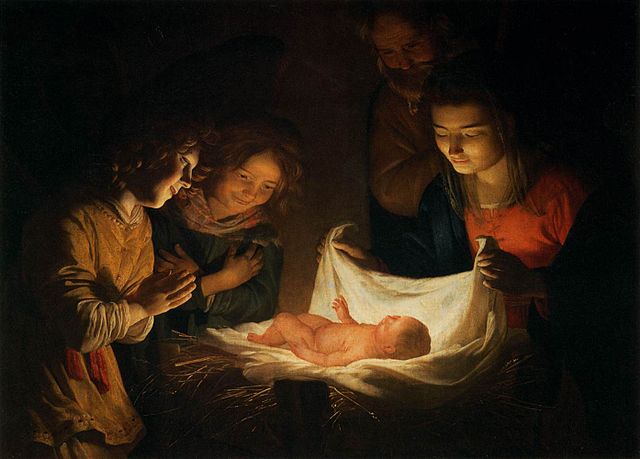
Adoration of the Child, Gerard van Honthorst, c. 1620
The fact that faith is shadowy is a blessing; it tempers the light to the eye’s weakness and prepares the eye for the light, for it is written: ‘He cleansed their hearts by faith’. Faith therefore does not quench the light but protects it. If you cannot yet grasp the naked truth is it not worthwhile to possess it wrapped in a veil?
Bernard of Clairveaux
On the Song of Songs 31.9; CF 7:132
quoted In the School of Love: An Anthology of Early Cistercian Texts. ed. by Edith Scholl, OCSO (Kalamazoo: 2000), p.72.


